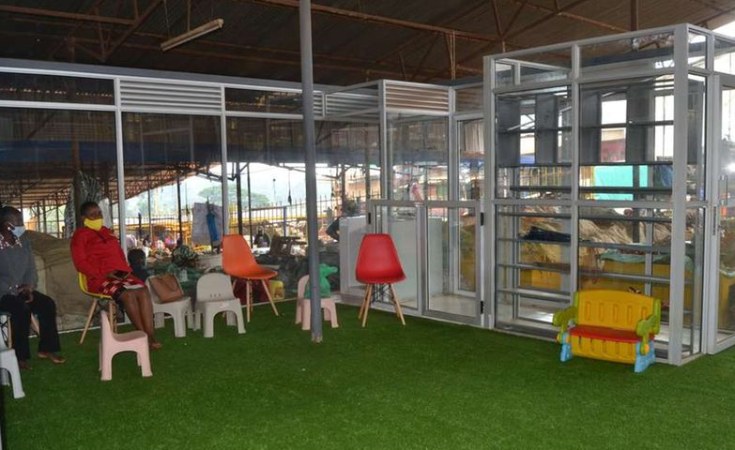Balancing work and family obligations has long been a reality for women. In the past year however, the COVID-19 pandemic has upset this delicate juggling act, reminding us just how fragile the work-life dynamic can be and how many sacrifices women must make to succeed in either sphere of our lives.
Across Africa, the pandemic is forcing female health care workers and community volunteers - many of them working mothers - to either leave the workforce or double up under rapidly deteriorating working conditions. On a continent with the world’s highest proportion of people living on less than USD1.90 per day, the reduced participation of women in meaningful and fairly paid work not only threatens to drive more families deeper into poverty, it also reduces our chances of ascending to positions of leadership and influence within critical sectors, health included.
But even for those who remain within the workforce, challenges such as working while shouldering the load of unpaid care persist. Before the pandemic it was estimated that women were doing 2.6 times as much unpaid caregiving and domestic work than men, and up to 11 times more in countries like Mali. The challenges of balancing paid work and childcare are felt most acutely by low-income women working in the informal sector, which comprises over 74% of non-agricultural employment for women in Africa. The impact of this on women’s prospects for career advancement, against the backdrop of the pandemic and its decimation of social safety nets, has now come to the fore.
Workplace inequalities and cultural restrictions and obligations mean that working mothers must often make a choice between staying home with the children or fully showing up to work. For many of us, the compromise usually involves decelerating career growth or shying away from additional responsibilities that we fear may prevent us from fully carrying out our duties as wives, partners, mothers and caregivers. No wonder the gender gap at senior levels across sectors remains so wide.
For example, in health globally, a sector that has been thrust into the spotlight during the pandemic, the disparities between the number of women who make up the workforce (70%) versus their representation in leadership (25%) has come into sharp focus. It’s a fact that has resulted in uninformed decisions about health care, which has in turn negatively affected women’s health and access to reproductive and other health services, further hampering our ability to work and progress in the workplace. This imbalance has sparked conversation on why gender equality in the workplace, and in particular in leadership positions, is so important - especially in the health field right now.
Research has proven that diversity in leadership (including having representation along gender, racial and ethnic lines, among other dimensions) is good for all of us, and that the meaningful participation of women drives better health and economic outcomes. When we lack diversity in health leadership, we lack the ability to provide holistic, sustainable and inclusive solutions to the most pressing health challenges we face. This could be why for example, only 4 out of 113 gender-sensitive COVID-19 response measures in Africa have tackled unpaid care for working mothers, failing to address a significant barrier to women’s ability to ascend to leadership.
We cannot close the gaps in health leadership if we continue to ignore this and many other barriers faced by women in the workplace, including working mothers.
This Mother’s Day we owe it to all working mothers across all sectors, informal and formal, to make workplaces work for them. We need to push the needle on equality at work and in leadership by addressing the barriers that mothers face in the workplace. Where applicable this involves putting in place the institutional changes required to address organizational marginalization and exclusion. This includes structures and considerations that allow new mothers to transition back into work and grow into leadership positions through, for example, flexi-time and paid-for childcare.
In the informal sector, empowering women through policies, knowledge and opportunities that allow them to transition into the formal sector where they can improve their incomes, and investing in public services and infrastructure that support dignified employment, are key steps toward equipping women to lead.
We need to do the hard work of chipping away at the historically male-modeled ideas of what it means to be an effective leader; to embrace new ways of working that allow mothers to flourish at work and at home - and to lead.
That’s why WomenLift Health is working with partners around the world to advance talented women into senior leadership positions in health. But this can only happen if we explicitly talk about our contributions to Africa’s health, growth and development, and push for more inclusive government policies and workplaces that accommodate mothers.
We have an opportunity coming out of the COVID-19 pandemic to build back better. Now is the time to go beyond the “normal” we were accustomed to and empower Africa’s working mothers for shared prosperity, which can only be achieved if we, among other things, make room for more women at the health leadership table.
Dr. Namwinga Chintu, is the Africa Partnership Director, for WomenLift Health


